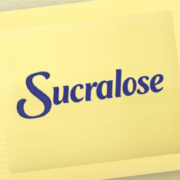Sugar vs. Sweetener Research: Meaningless in the Real World
I’m in a slight disadvantage in evaluating this study; I was able to read only the convention-session abstract and the press release. There were no recordings of the presentation that I could find, so there are details I don’t know. I have questions about the process, not the results, so here are my thoughts.
The In-Vitro Study
If you’re not familiar with the lingo, time to learn. In vitro is Latin, meaning literally “in glass.” An in-vitro study is conducted in a Petri dish, a test tube, or some location outside of an entire animal or human.
In this study, researchers exposed endothelial cells from the rats’ arteries to sugars and artificial sweeteners. We know there were changes in proteins; what we didn’t know is whether the change in protein genes that were activated in response to the artificial sweeteners mimicked a pattern we might see in a rat that’s diabetic. That’s an important question.
It would have been more meaningful if they examined a pattern of protein responses that occurred in the endothelial cells of rodents that already had diabetes. Just because something is activated in response to a stimulus, in this case sugars or artificial sweeteners, that doesn’t necessarily mean it’s a bad thing. It just means it happened.
The In-Vivo Study
In vivo is also Latin and means within a live animal or human. I have several issues with the rodent part of the study. First they gave high levels of sugar to the rats as well as high levels of artificial sweeteners. It would seem to me that it would be beneficial to get an estimate of what humans actually consume on a daily basis, dose it down to the appropriate amount for a rat, and start with that. Then you can compare your test results to a “normal” level. Next you can begin increasing the amount to see when the negative effects begin.
Second they used the DR/BB rat; DR stands for diabetes resistant and BB stands for biobreeding. This type of rodent is often used for research on type 1 diabetes because although it’s diabetes resistant, it has an underdeveloped immune system. It will respond to environmental insults differently than normal rats. Excess levels of sugar and artificial sweeteners may create an insult to the immune system to cause type 1 diabetes in this breed of rat.
The reason for doing the study was to see if artificial sweeteners may be contributing to the obesity and diabetes epidemic—type 2 diabetes, not type 1. Using this breed of rat seems like it would muddy the results. The changes they found in the blood of these rats fed excessive amounts sugar and artificial sweeteners would have been expected. The question is whether this is related directly to the research hypothesis or not. In my opinion, no.
To make this study pertinent to humans, we would need a similar pattern found in humans. Perhaps people under excessive stress and whose immune systems were compromised might show some relationship. But we’re not talking about susceptibility to type 1 diabetes. We’re talking about type 2 diabetes, and although they share a name, they’re vastly different diseases.
What we have is a study in test tubes on protein genes that are activated in response to artificial sweeteners and a second study on rodents with some dysfunction in over 200 different protein genes in response to sugar and artificial sweeteners. We may have people who use excessive amounts of artificial sweeteners everyday. We may have specific but as yet unknown gene patterns that may make people more susceptible to type 2 diabetes, but we haven’t identified what those genetic patterns are at this point or even if they exist at all.
The Bottom Line
So what does this study mean? This basic research shows that there may be a pattern to protein synthesis that’s different in high-sugar versus artificial-sweetener intake. But that does not resemble in any way what the authors of the study suggested in the press release. This study is relatively meaningless in the real world. Maybe we’ll know more about how all this impacts humans in another 5–10 maybe even 20 years. But as of today, it’s just provocative headlines. And we get far too many of those already.
Use artificial sweeteners or do not; that’s your choice. But don’t change based on this study. Use the old adage: everything in moderation including moderation.
What are you prepared to do today?
Dr. Chet
Reference: EB 2018. The Influence of Sugar and Artificial Sweeteners on Vascular Health during the Onset and Progression of Diabetes Board # / Pub #: A322 603.20.









